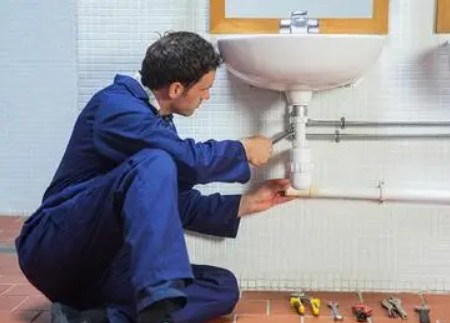Ensuring access to clean and safe water is essential for every household, yet many people unknowingly expose themselves to harmful contaminants found in their tap water. While drinking water quality is a priority, other water sources in your home, such as showers, baths, and dishwashing, are just as important when it comes to your health.
A whole house water filter can provide comprehensive protection, delivering clean water to every faucet and appliance in your home. But is it really necessary? Let’s explore why installing a whole house water filter is one of the smartest decisions you can make for your health and well-being.
What Is a Whole House Water Filter?
A whole house water filter is a filtration system designed to treat all the water entering your home, ensuring it’s clean, safe, and free from contaminants. Unlike individual point-of-use filters, such as those for faucets or refrigerators, a whole house water filter filters water at the point of entry, providing purified water to every faucet, shower, and appliance.
These systems are typically installed at the point where the main water line enters your home, making it a convenient and efficient way to filter water for every part of your household.
Why You Need a Whole House Water Filter
1. Protection Against Contaminants
Tap water, though treated by municipal water facilities, can still contain a variety of harmful contaminants, such as chlorine, lead, pesticides, heavy metals, and bacteria. Even well water can be contaminated with organic materials or industrial chemicals. A whole house water filter removes these pollutants, providing safer, cleaner water for you and your family.
Common contaminants that a whole house water filter can remove:
• Chlorine: Used in municipal water treatment but can cause skin and respiratory irritation.
• Heavy metals: Lead, mercury, and arsenic can enter water sources from old pipes or industrial activities.
• Sediments: Dirt, rust, and debris can clog pipes and appliances.
• Pesticides: Chemicals used in agriculture can seep into water supplies.
• Bacteria and viruses: Microorganisms that can cause illness if left untreated.
2. Improved Water Quality for Household Needs
Water is essential for much more than just drinking. From washing clothes to cooking, a whole house water filtration system ensures that all your household water is free from harmful chemicals and particles.
• Better skin and hair health: Chlorine and other chemicals in water can dry out your skin and hair. By filtering these impurities, a whole house water filter can help maintain your skin’s natural moisture and keep your hair soft.
• Cleaner clothes and dishes: Water free from minerals and contaminants can help your laundry stay cleaner, while your dishwasher will perform better without build-up from hard water.
• Taste and odor improvement: Water treated by a whole house water filter tastes better and has no unpleasant odors, making it more enjoyable for drinking, cooking, and bathing.
3. Convenience and Cost-Effectiveness
One of the biggest advantages of a whole house water filter is the convenience it offers. Instead of installing individual filters on each faucet or appliance, a whole house water filter treats all your water at once. This eliminates the hassle of constantly replacing filters on individual devices, saving you time and money in the long run.
• No need for individual filters: Once you install a home water filtration system, you won’t have to worry about replacing faucet or showerhead filters.
• Reduced maintenance: A whole house water filter typically requires less maintenance compared to multiple individual filtration systems.
• Cost savings: Over time, investing in a whole house water filter can be more cost-effective than purchasing bottled water or replacing small filtration units frequently.
Reverse Osmosis Systems: An Upgrade for Enhanced Water Purification
While whole house water filters provide general protection against contaminants, some homeowners opt for reverse osmosis systems for a more advanced level of filtration. A reverse osmosis system uses a semi-permeable membrane to remove smaller contaminants that regular filters might miss.
How does Reverse Osmosis Work?
A reverse osmosis system forces water through a membrane that only allows pure water molecules to pass through, leaving contaminants behind. This process removes a wide range of impurities, including:
• Lead
• Nitrates
• Arsenic
• Fluoride
• Chlorine and chloramine
Installing a reverse osmosis system as part of your whole house water filter can provide the highest level of purity, ensuring that every drop of water is as clean as possible.
Choosing the Right Home Water Filtration System
When it comes to selecting a home water filtration system, it’s important to understand your home’s specific water quality needs. Here are some factors to consider when choosing the right system:
1. Water Source
• Municipal water: If your water comes from a city or public supply, it may be treated, but still contain chlorine, fluoride, or lead. A basic whole house water filter can address these issues.
• Well water: Well water often requires more intensive filtration to remove contaminants like bacteria, iron, sulfur, and sediments. A specialized filtration system may be needed for well water.
2. Contaminants in Your Water
Conduct a water test to identify specific contaminants in your water. This will help you choose a filtration system that targets the right impurities, such as chlorine, heavy metals, or bacteria. For more thorough filtration, consider a reverse osmosis system in addition to your whole house water filter.
3. Flow Rate and Size
Choose a home water filtration system that meets your home’s flow rate needs. If you have a large home or multiple bathrooms, make sure the system can handle high water demand without sacrificing filtration quality.
Conclusion
A whole house water filter is an essential addition to any home, ensuring that your family has access to clean, safe, and healthy water. Not only does it improve the quality of your drinking water, but it also protects your skin, hair, appliances, and overall health. With the added benefit of a reverse osmosis system or other advanced filtration methods, you can be confident that your water is free from harmful contaminants.
The convenience, cost-effectiveness, and long-term benefits of installing a home water filtration system make it a wise investment in your home’s overall health and safety. Don’t wait for the water quality in your home to deteriorate—take proactive steps today to ensure your water is as pure as possible. water purification systems


